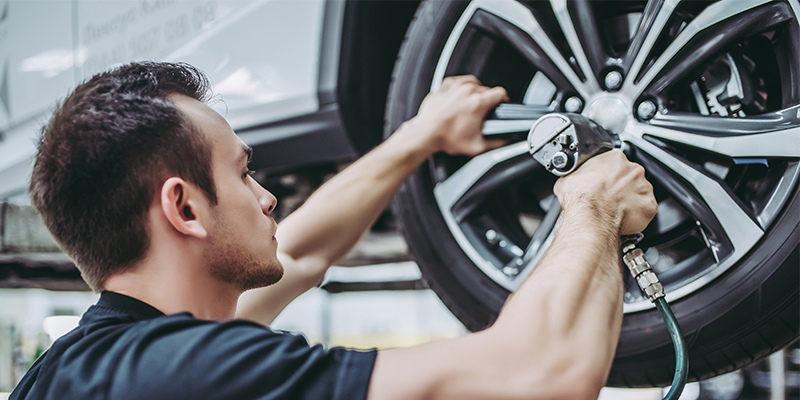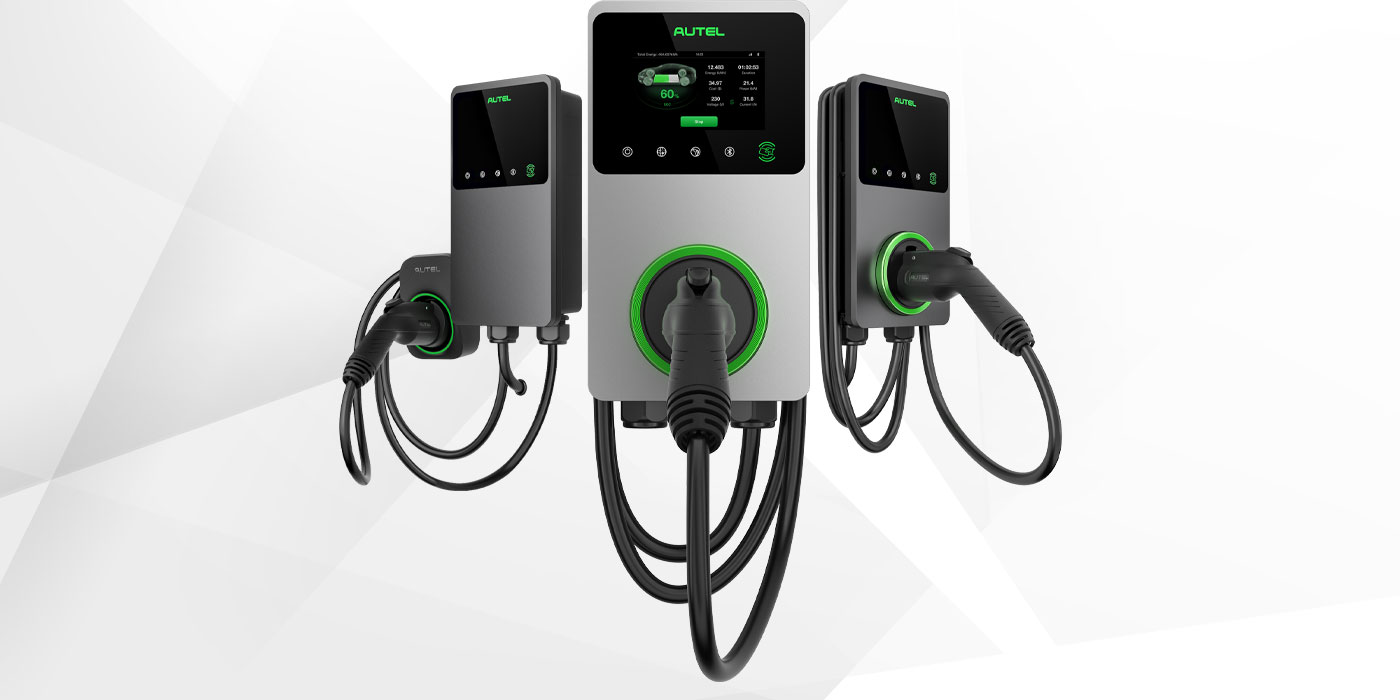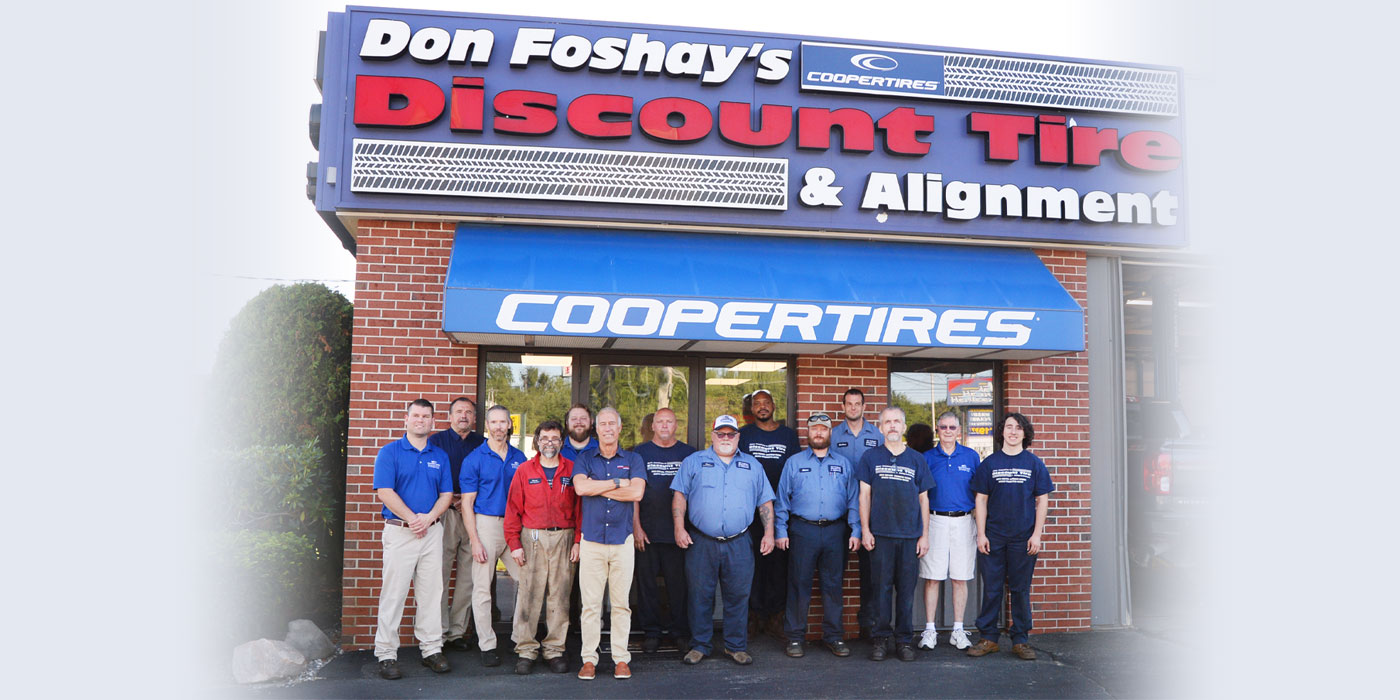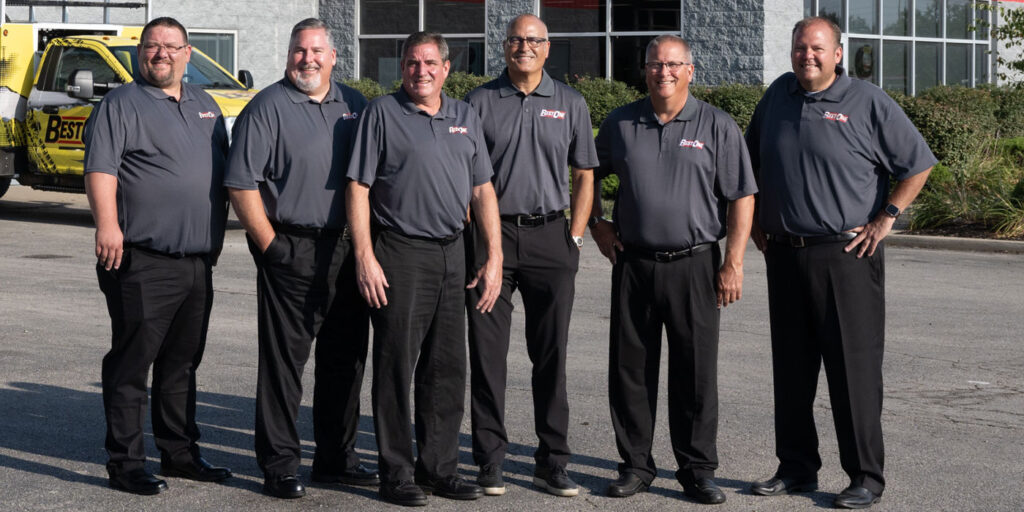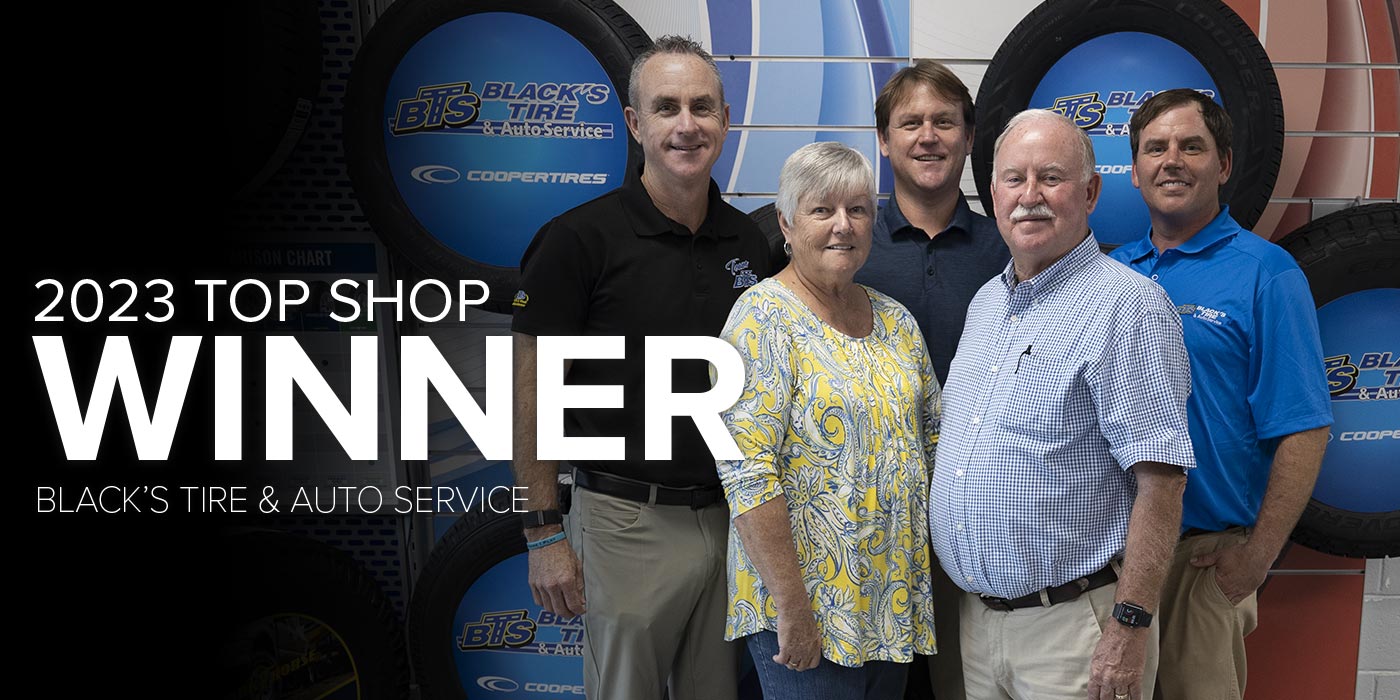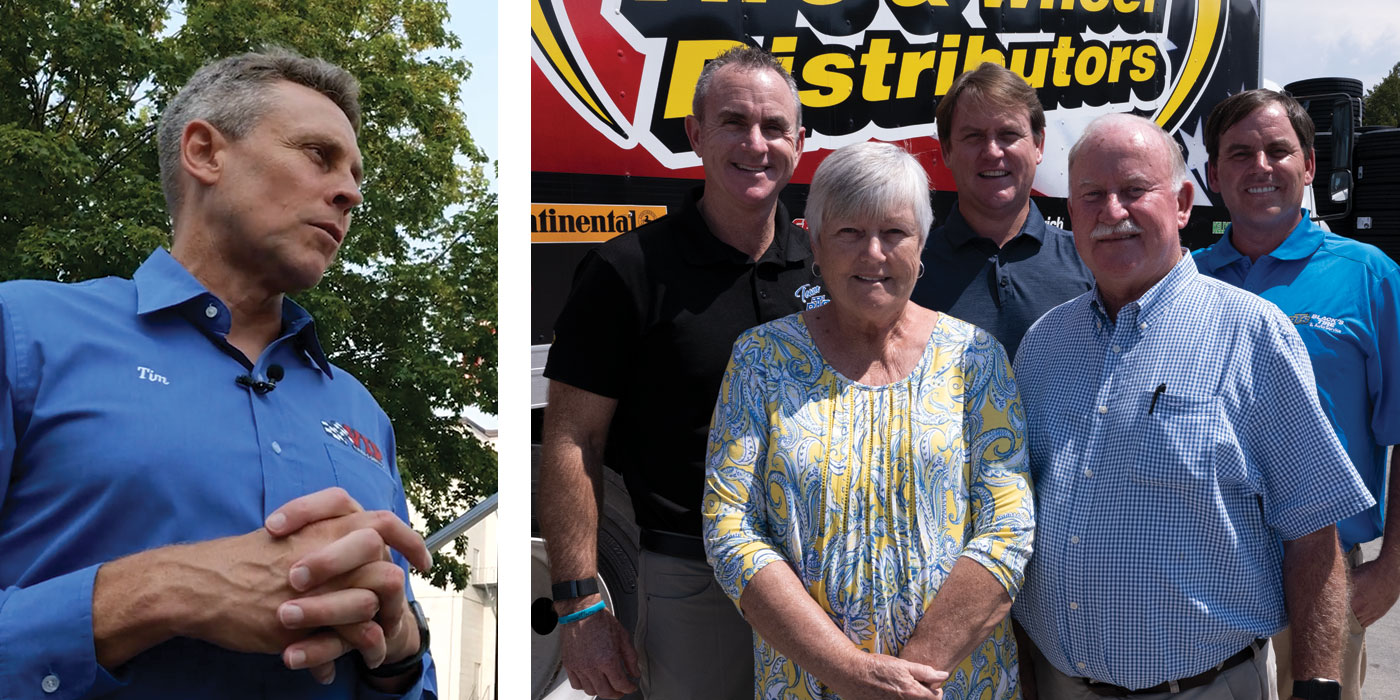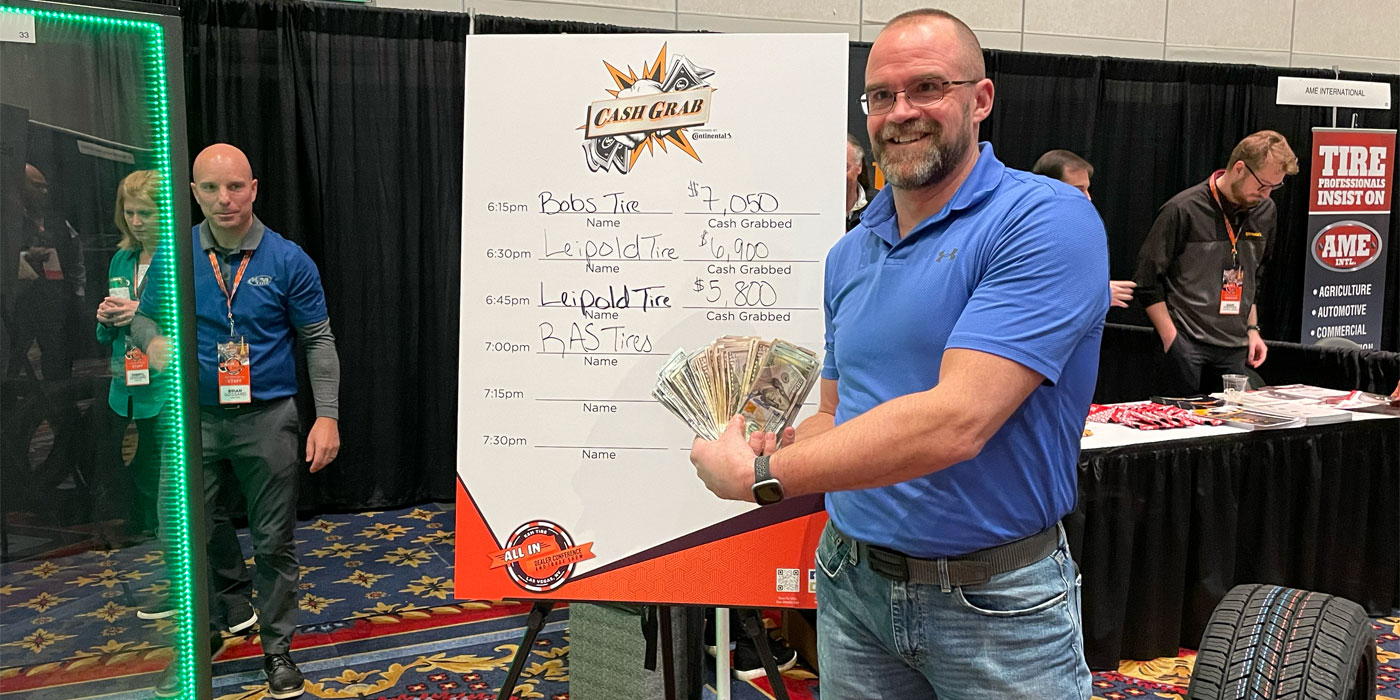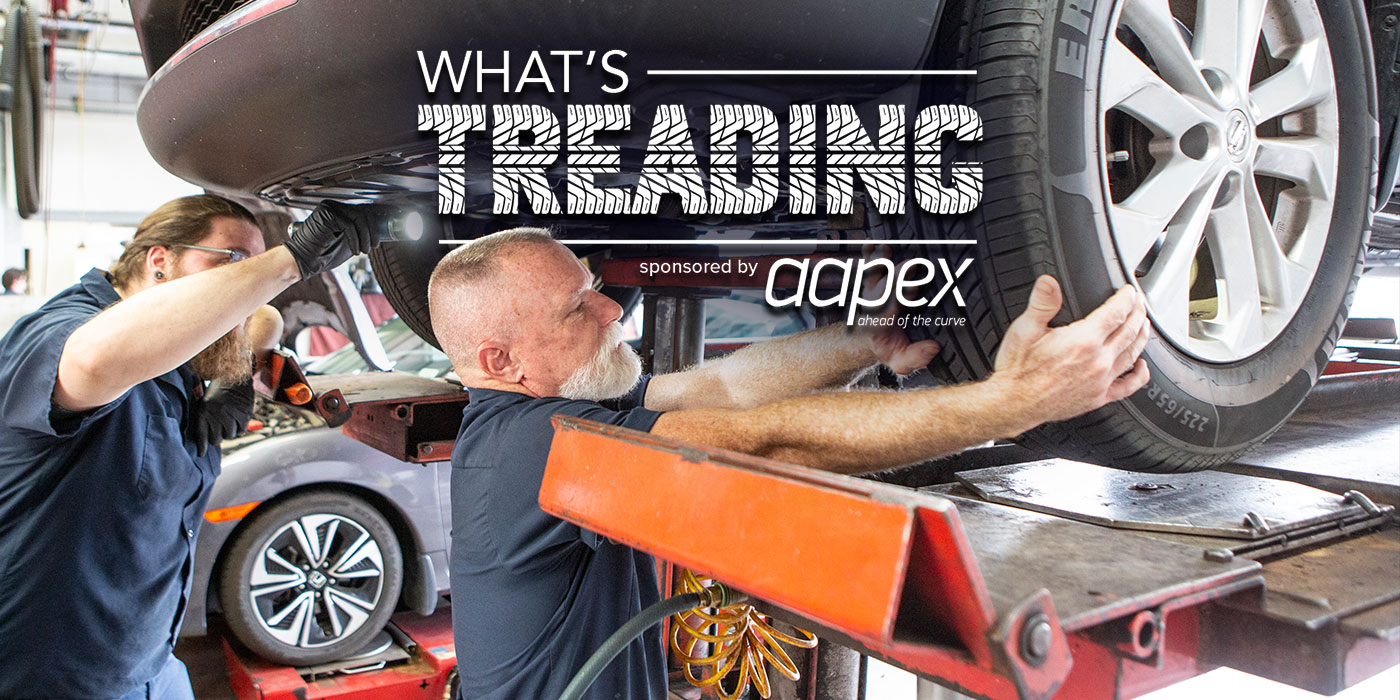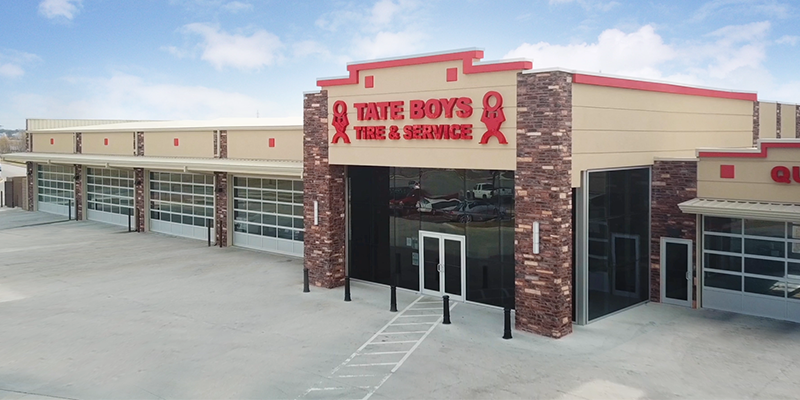
Walk into a Tate Boys Tire & Service location and you can tell that they do things a little differently than other shops. Employees move a little faster. Their hands are clean and shirts tucked in. Most of all, they seem to enjoy what they’re doing.
For Tate Boys, our Tire Review 2018 Top Shop Winner, running a multi-store tire business is like operating a professional sports team. At each location is a high-functioning team, rooted in cross-process training and non-negotiable expectations. A “playbook” approach that can be replicated across locations helps ensure the highest level of customer care, quality and speed. Managers (i.e., “team captains”) at each location keep the teams on task and on time. “Strategic coordinators” along with the “head coach” at the Tate Boys corporate office and training center make calls using real-time data based on integrated software to evaluate the effectiveness of each team/location and provide support from the sidelines.
Tate Boys operates its locations from a separate headquarters that includes a robust training center complete with manikins showing the proper way to wear the Tate Boys uniform, plus offices for support staff and conference-room areas.
Hiring for the seven locations of Tate Boys Tire & Service is focused on recruiting “A Players,” preferably with a team-sport background. They look for people with emotional intelligence and the ability to work as a team, going so far as to incorporate Wonderlic testing in their pre-hire screening.
“We love athletes,” says owner Craig Tate when asked about the sports mentality of the organization. “When it comes to a five-star employee, we love people that can be competitive, take the coaching and work together as a team because that’s what we are – a team. It’s everything that we do from a process side. We just don’t have one technician working on a car – we have six technicians. If there’s one car in the bay and we’ve got six technicians on it, we can get them out in five to 10 minutes. Everything is a process and working together as a team.”
The guiding principles of each team and its players are six shared corporate values, acting as a North Star to guide the direction of the Tate Boys business and each employee.
Those are:
1. Making it about others
2. Serve with passion
3. Find fun in all we do
4. Commit to excellence
5. Always do the right thing
6. Continue to improve
Tate Boys’ Core Values hang on the walls at each location, outlining the qualities that go into institutional excellence. Teams also do morning huddles, where employees are often challenged to find ways to dig deeper into a specific Core Value. For example, finding ways to improve… to have more fun… to better serve others, etc. Challenging employees also means leadership and management teams must consistently lead by example.
Making It About Others
For founder and patriarch Bob Tate, early success as an independent tire dealer was rooted in Core Values #1 and #2 – making it about others and serving with passion.
After 30 years with OTASCO (Oklahoma Tire and Supply Company), Bob retired, but he missed taking care of his customers. Two years into retirement, his wife encouraged him to get busy again, so he opened a two-bay gas station in 1988 in Bartlesville, Oklahoma called Bob Tate’s Tire. His sons, referred to as “the boys” in their small town, worked in the shop and pumped gas when they weren’t in school. Then in 2000, brothers Craig, Chuck and Curtiss Tate bought the business, renaming it Tate Boys Tire & Service.
Soon after, Curtiss moved on to start his own retail tire business, Curtiss Tate’s Tire & Service, with two locations about an hour outside of Bartlesville.
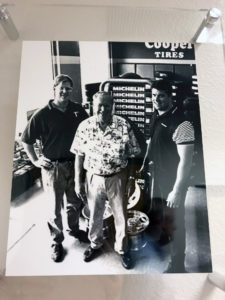
Craig and brother Chuck stayed on and built the business, adding more locations with the continued support of their father, who passed away in 2015.
As the business grew, the brothers realized that further expansion was more than they could manage on their own (Core Value #6), so in 2016, they recruited A-Player Marty Schoenthaler to join the family business as CEO, after he left a high-profile role as Chief Information Officer (CIO) of Archer Daniels Midland Co., one of the largest companies in the world. A native to Bartlesville after 10 years as an executive with ConocoPhillips, Marty became friends with Craig while coaching their sons in peewee football. When the Tates realized they needed a CEO to help take the business to the next level, Marty was tapped to become the team’s head coach.
Despite changes, both Chuck and Bob’s legacy of service to others remains the foundation upon which Tate Boys Tire & Service has grown.
“You start with Bob Tate,” says Marty. “We make sure from the beginning [employees] understand they all work together [and as Chuck Tate exemplified], they serve with a passion. First of all, we hire for that. We’re looking from the beginning if [a person is] going to have that type of value or capability, number one. Number two, they hear in orientation about the company and about Bob Tate. We respect the legacy of this company…. There’s a history and a legacy that people know and remember, and others uphold that as well. It’s as much about that and kind of representing the brand. I know that’s corny, but this brand goes way back, and there’s a lot of people that respect that. It’s as much about the heart and the heartstrings. We hire to it, and it is reinforced and kind of reminded on a regular basis.”
Perfecting a Process
When starting out, Craig and Chuck found that having former athletes as new hires worked best because the person had a foundation of putting in the work, following instruction, supporting others and working as a team to achieve a common goal. Plus, they knew how to hustle.
Increasingly higher volumes of tire sales also made standardization of practices a necessity to keep efficiency high – a concept Craig learned from working a second job at UPS during the early years of his career to supplement his income.
“The first four years that I worked in the business after college, I had three kids and that store could not afford both of us,” he says. “I worked full time at the tire store, but I went to work for UPS for 4-1/2 years. [Process efficiency] really got ingrained in me If you touch a package twice or [take extra] steps, we just don’t have time.”
Craig took that culture of efficiency at UPS and adapted it to their tire bays. Procedure and process are now a key part of the Tate Boys playbook.
“It actually got institutionalized in real life because when we just had one store and it was Chuck and I, we had four tire techs plus two mechanics. Chuck and I would run the front counters, but we sold 2,000 tires a month. We would sell 500 to 600 tires a week. The only way that we could do that was that everything had to be exactly [in its place and mapped out].”
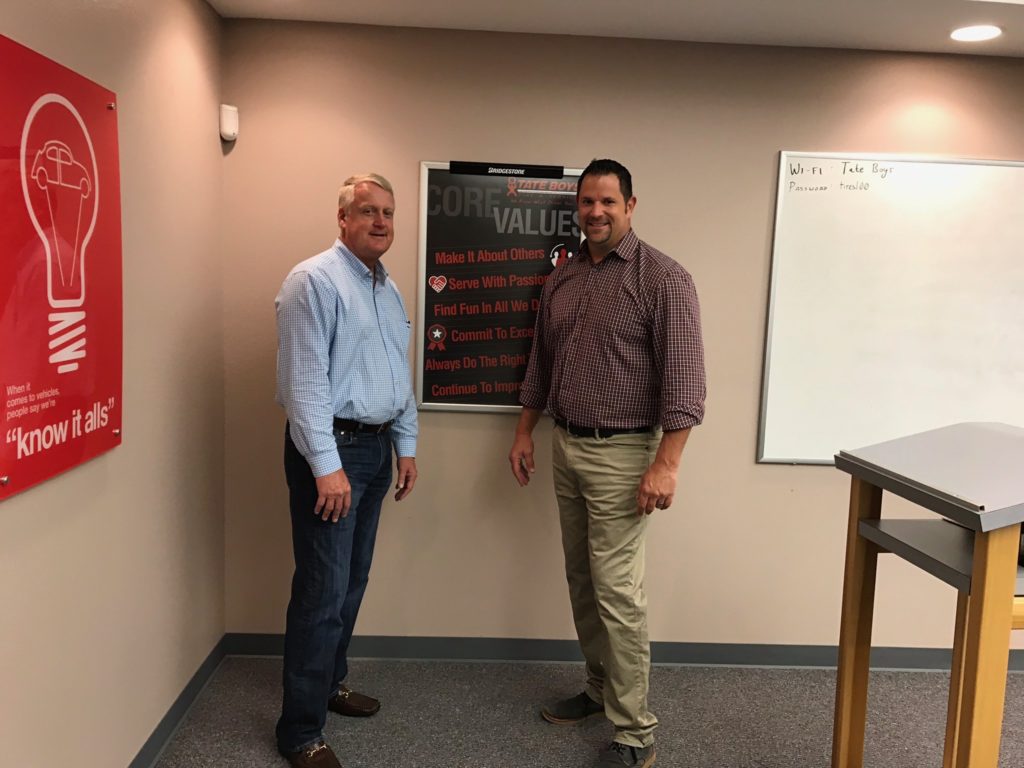
This attention to detail and to process has helped Tate Boys Tire & Service work faster, taking care of their customer’s need for speed.
“It’s grown since then and has developed over the last 10 years. But there’s a workflow optimization that we understand. We work in a risky business. If that left front is not tightened, you can literally kill somebody. We know that there’s got to be a process. There’s only one way we do things, and that’s our process. We don’t let other people come to work to for us and say ‘I do it this way.’ No, you don’t. We teach it, we train it, we institutionalize it, and it’s a non-negotiable.”
Having standardized processes also helped keep operations moving forward with the loss of Chuck Tate last year (see page 28).
‘Time is Money’
According to owners Craig and Marty, time is the new currency with consumers. It’s what consumers increasingly value most – getting problems solved quickly so they can get on with the rest of their day.
Speed is a key metric in the Tate Boys approach. Visit TateBoys.com and you’ll see the average wait times across locations. Their approach of multiple team members working on a vehicle at the same time helps shave time off the clock – a clock that starts ticking as the vehicle is pulled into the bay.
“There’s a certain way that we move; we have to move at a certain pace,” explains Craig. “You’ve been in a bunch of tire stores. Everyone says that when you come into ours, we just move differently. We don’t take our time getting the gun. When you talk about workflow – 5S, Six Sigma – every process that we look at is about minimizing steps. Our bays are set up for speed, but also efficiency and to do the job correctly, meaning if that gun is not where it’s supposed to be, that’s a big deal because that’s going to take extra steps… all the tools that are needed to work in those bays are in a certain position, and they’re labeled. If you’re missing a 13/16 socket, it’s not in there, but it’s labeled so everyone knows, okay, where’s that 13? It’s going to slow it (the process) down, so we try not to waste any time.”
For the Tate Boys team, every second counts – so much so that new technology such as walk-away autonomous tire-changing equipment isn’t of interest because it’s too slow compared to traditional methods. Even some Tire Industry Association suggested practices are too slow for the team. With the right processes in place with well-trained consistency, speed is not at the expense of safety.
Units sold and profits matter, yet time is how they keep score.
“[Time] is a great differentiator because in this industry, [a customer] can go get tires in a lot of different places, but that experience – especially if time is important to her because she has kids, she’s got to run them to practice and all that – time is a big part of our business model,” says Marty.
Because of their time-saving focus, the team at each Tate Boys location acts more as a pit crew than individuals secluded by bay. The goal is to have customers in and out for tires in 30 minutes or less. Wait times are updated at each location every 15 minutes on the company’s website. The clock starts when the customer is logged in at the counter. Customer wait times and other key business metrics are monitored via TireShop by Freedomsoft, a point-of-sale software designed for tire and auto service locations, integrated with DOMO, a cloud-based data management and visualization tool. This allows the company’s leaders to keep the pulse on the speed of both technicians and bays at each location in real time (every 15 minutes) in addition to other important metrics. Craig and Marty could run the business from their phones if they needed to with shared performance dashboards they’re able to view across devices (phone, desktop computer, tablet, etc.). Where Craig, a finance major, used to crunch numbers from spreadsheets each night to gauge performance, now he and Marty have the information they need to effectively manage the multi-location business through an app on their phones.
Serving with Passion
Craig says that his brother Chuck was a huge influence in developing the rich culture that is now ingrained in Tate Boys Tire & Service. When it comes to serving with passion, Chuck personified it.
“Passion to serve was one of Chuck’s biggest values that he represented on a daily basis,” shares Craig. “He had a saying he used it in training and when talking to teammates about a servant’s heart. That saying was, ‘You make a living by what you get. You make a life by what you give.’ That is a saying that we use in orientation and something that we use on a daily basis to make sure we live that mantra. [Chuck] truly set the foundation for serving with a passion.”
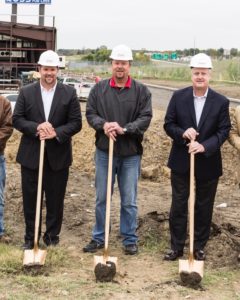
Tate Boys Tire & Service will often “hire the smile,” prioritizing attitude over aptitude, training people up based on the Tate Boys playbook and way of doing things.
Tate Boys Tire: Surviving the Loss of Chuck Tate
To confirm someone is the right fit for the Tate Boys team, the company’s pre-hire assessment includes Wonderlic testing, a group of intelligence tests made famous by the NFL that helps identify a person’s strengths and “soft skills.” Tate Boys designed their test format to drill into an individual’s emotional intelligence, which is an important aspect of their shop culture.
“We don’t base our decision 100%, but… we want people who are easy to talk to, whether you’re going to be a quick-lube guy or a tire tech,” Craig explains. “Then, if we look at their emotional intelligence, the Wonderlic testing, and they score low on that, then we know that they’re probably not going to be a fit for us. But if they’re high energy, look us in the eye, shake our hands – we really look for that type of stuff – and are easy to have a conversation with, and then we get their Wonderlic test and they score high in those areas, then we probably know we’re on the right track. So, we really drill it out.”
Marty has a mantra, “Hire slow; Fire fast.” The Tate Boys talent-acquisition process is more complex than most tire dealers, but the result is a stronger operation filled with individuals that have a passion to help others.
“[Passion and mindset] are rooted into our hiring, into our training, institutionalized every which way that we go,” explains Craig. “[Our history] is an orientation for people who start here. They hear that this company’s bigger than me and Marty and anybody that comes in, but yet what you do is the most important thing that happens. It’s just foundational for us. It is rooted into who we are, and once again, it’s nonnegotiable.”
Family Expectations
While Tate Boys considers itself a “family business,” being in the family doesn’t actually mean things will be easy for you.
A prime example is brother Chris Tate, who returned to the family business in July. Even though he worked in the shop when he was young and owned his own restaurant in Portland, Oregon for many years, Chris still has to start from the bottom up, just like everybody else. That foundational training is part of the culture.
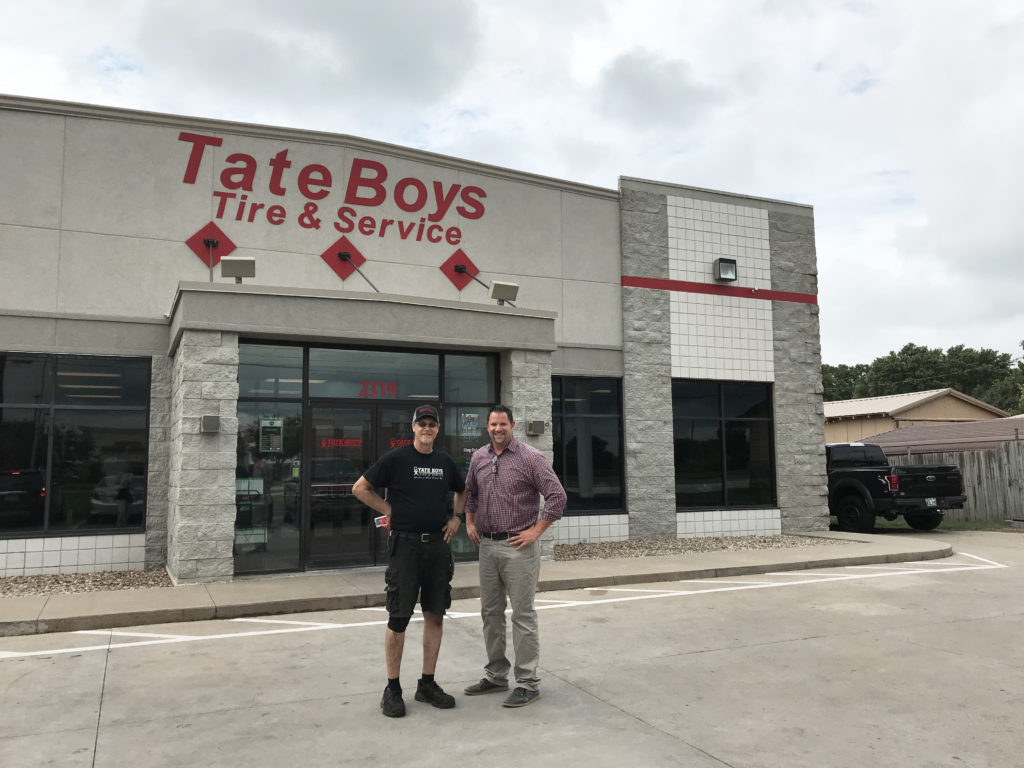
“He’s changing oil today,” said Craig about his older brother. “He’ll be back there for six months. He’s got to learn the business. He’s got another 90 days working as a tire tech. Then he’ll work 90 days as a mechanic with the other mechanics before we ever move him up front.
“He knew what he was getting into, but I did feel bad for him. We did put him at the busiest store [in the hottest month of the summer], but he loves it,” he laughs. “He’s got a heart of gold. He’ll fit in well, but in this business no matter what, you got to learn the back business. That’s where the magic happens.”
Having family members working together in a growing business offers its own set of challenges. To minimize the potential of favoritism, Tate Boys has a “no nepotism” policy: No family member can report to another family member. This helps to minimize any inkling of preference, which can impact morale. Being part of the family also means being held to a higher standard.
“When you’re a Tate, when you’re a family member, when you’re a Schoenthaler, you’ve got to act different,” explains Craig. “That’s a thing that we stress to our family that’s in the business, the expectation. We’re going to be tougher on you than anybody…. Family members are tough to work with, but if you set the expectations and you set a guideline, it makes it easier.”
It also may take them longer to climb the ladder. If two people are up for a promotion and the family member and the other person have the same skills and quality, they will go with the other person.
“You’d better be better,” says Craig. “The business is first. That’s the thing that we stress. We are a corporation. And we have policies and procedures. It’s in the culture. We don’t care what last names are.”
Finding Fun in All They Do
Both Marty and Craig agree that the tire business is hard, but it’s not complicated. The “fun factor” (Core Value #3) helps with day-to-day redundancy – and the fact that most customers coming into the shop don’t necessarily want to be there.
“At the end of the day, we want to have fun. I mean, it’s retail; it’s the same thing every day,” says Craig. “Just be nice to people. That’s it. My dad always said it best – just treat people the way you want to be treated. And we do live that.”
Craig says they consistently look for ways to show appreciation for their employees. Those may include team-building activities such as tire rodeos with teams from different locations competing against each other or hosting a big company Christmas party to simply doing breakfast on Saturdays. Even the music choice in the shop creates a fun environment to break the monotony.
“[Music is] part of our sensations.” says Craig. “[The team has] implemented funky Friday, and they do country Tuesday. Just little things like that that we do make it fun.”
In-store fun also includes friendly banter between employees and customers. With roots in the original Tate Boys culture, kidding around with people helps maintain a fun, positive atmosphere and creates better engagement with customers.
“For example, if you walk into the store as a customer with an Ohio State shirt on, you’re going to probably get ribbed about it,” Marty explains with a smile. “The interaction with customers is the same. And I will tell you, Craig and Chuck modeled that from the beginning. I’ve said this a hundred times – it’s one of the few companies where I’ll walk in and be ridiculed, teased, whatever, and I love it…. It’s really built into how we do our process. It helps us break walls down to create more engagement, but it’s done with a lot of humor and fun.”
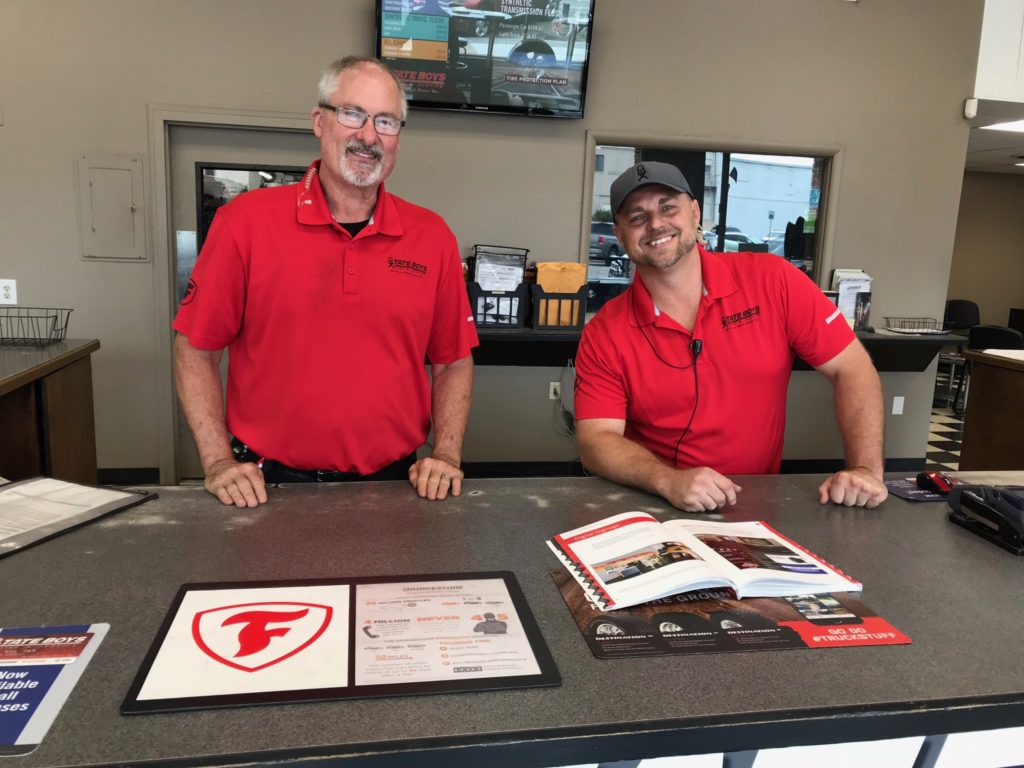
Beyond the banter is the emphasis of connecting with each customer on a more personal level. Topics and details of customer interactions can be saved in the TireShop system, so on their next phone call or visit, a big red box will pop up on the screen, reminding the person at the counter the details of an earlier interaction. Notes include lighter details, such as personal interests, their child playing in the Little League World Series, a favorite sports team and more. It also can provide reminders of how a challenging customer wants their vehicle treated so extra care can be taken. Developed by Freedomsoft at the request of Tate Boys, this note tool is now a standard feature of the Tire Shop platform.
“We don’t commoditize the product. If you come in and say you need an oil change and an inspection because you’re taking little Johnny to college…we talk about that stuff, so now we can put that into your account,” explains Craig.
Tate Boys also records its phone calls with customers as part of training received from Steve Ferrante of Pinnacle Performance Training. Craig said that the idea to develop a note system came from Steve’s training. When using the tool with a sincere, make-it-about-others approach, Craig says “price comes off the table.”
“Once again, it’s relationship. We deal with so many customers, and we want to remember them,” Craig explains. “It’s the same thing that the Ritz-Carlton does. If you like a soft pillow and you tell them in Florida, when you go to New York, they’re going to remember that, so they make sure that that pillow’s there. It’s about the experience.”
Commitment to Excellence
A major component to their commitment to excellence (Core Value #4) is what Craig refers to as “ruthless standardization.”
“There’s a right way to do things, and we want to commit to be excellent,” he explains. “There’s a process for everything. That’s a thing that we stress to our people, because it is one of our core values, that we’re going to train you, we’re going to teach you, but at the end of the day, you have to have enough discipline in yourself to do it the right way. We’re open to change, but [require] ruthless standardization. The way that we approach customers, the way that we talk to a customer, the way that we put a tire and wheel on – we have [a standardized process that] overlays everything.”
In addition to process, managing customer impressions is another important part of their playbook when it comes to excellence. As Marty explains, it’s not about what you’re doing as much as it is about what the customer thinks you’re doing that matters most. Perception is their reality.
As part of making it about other (Core Value #1) and delivering a higher level of customer service, Tate Boys policy includes nonnegotiable expectations for employee conduct, included as part of orientation and ongoing training.
“We’ve got nonnegotiables all over, but something that we stress are the things you can’t ever do in view of the customer,” explains Craig, attributing the lessons to what he calls the “Disney Principle” reinforced by the company’s ongoing training with Ferrante, a Tire Review contributor.
“When we’re making it about them (the customer), we can’t be in the view of customer [doing certain things],” adds Marty. “We can’t eat, we can’t be on our cell phone, can’t talk on our cell phone, can’t lean against a wall, we can’t wear sunglasses. There’s about eight nonnegotiables that we can never do, that if we did them in the view of our customer, it would put us first before the customer, because of the perception-versus-reality factor.”
Some team members might question why they can’t eat on the job – especially as sometimes the teams will work through lunch to take care of customers. But if a person has been waiting 45 minutes for their vehicle and they look out to see people eating pizza, the perception is that the team is more focused on themselves instead of on the customer’s needs. Marty said that they might think, “No wonder it’s taking this long!” when the reality is that the team worked through lunch.
MORE: Tate Boys Leadership Were Team Players from the Start
He adds that if you’re focused on yourself while at the counter or in the bay – like sending a text or checking social media – then you’re also not focused on the customer. While some shop owners might find this to be a challenge to enforce, Marty says when you hire the right people who truly care about others and set those expectations early, the rest falls into place.
Developing Future Leaders
Finding people to take the Tate Boys playbook to lead new teams in future locations also means developing those with management potential from the ground up. To accomplish this, Tate Boys developed its own “Manager In Training” (MIT) program. The goal is to attract college graduates with the right Tate Boys attitude into the program almost in its third year.
“If we do this right, then we’re developing those folks along the way. Craig has said it a hundred times, it’s not capital or even access to land to open new stores. It’s access to talent. The manager in training program is critical for that,” Marty says.
Yet even those hired into the MIT program have to start from the bottom up. To Craig, that’s a key component to the program and the future success of the organization and its culture.
“We would bring in talented people because they’re great personalities or great leaders and move them right up front,” explains Craig. “But five years later, they still don’t know what a ball joint is. It’s like, what do you mean you don’t know? So, we said okay, we’re going to slow down, identify those people and create a position so we can go out and recruit, pay them ahead of what they normally would come into the company at because of our investment. We’re just going to throw them in the back, and say here’s the program. One, it will test them as far as if they really want to do this. But [more important than that], they will know the operations from the ground up.”
For those roles, the company considers its competitors as ConocoPhillips and American Airlines, two of the largest companies in the area.
“We’re not just looking for anyone,” Marty says. “We’re looking for high-caliber talent, people with four-year degrees who did well, have other activities, maybe some other experience. So yeah, we have raised our standards in that line. Finding the right people, it’s a war for talent.”
Doing the Right Thing
When hiring and training your team according to the Tate Boys principles, doing the right thing (Core Value #5) should go without saying. Yet it’s a reminder to the team that each individual is empowered to take care of any customer concerns in the moment and without hesitation.
“We earmark [budget] for the stores to spend it on the current customer that we’re dealing with,” explains Craig. “We tell them at the end of the day, do the right thing by the customer. While perception is reality, the reality might be that these tires wore out on the back because they didn’t rotate them ever. But at the end of the day, let’s not lose a customer. We teach the value of a customer for a lifetime. We teach that at the end of the day, handle it yourself. It’s on your [profit and loss statement]. Just take care of them…. And you’re going to be the hero at the store level.”
The key to balancing customer care against “giving away the store” comes down to coaching.
“Empower, empower, empower,” says Craig. “Once again, the managers own the P&L of the stores. If they’ve got a guy that’s giving away stuff, the numbers tell a story.”
Thanks to the data tools, managers can see where there might be lower margins and more discounting so those areas can be quickly to be addressed.
Those margins matter. As an added incentive for managers at each location to perform well, Tate Boys has a bonus structure in place that includes 10% of net profits. But the pay is usually secondary to the fact that they truly care about the success of that store and the care of its customers.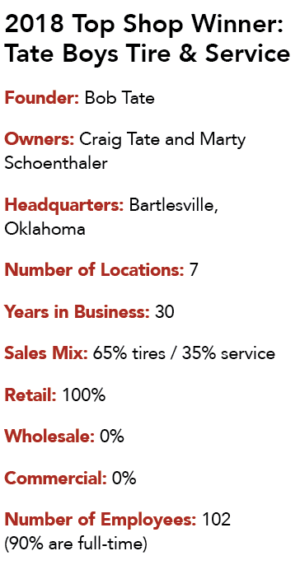
Each location also sets its goals for the following year – a performance number that offers a profit target. The goal is to keep it simple while rewarding them for doing a great job.
Continuing to Improve
Continuous improvement (Core Value #6) is part of the Tate Boys culture. In addition to ongoing training opportunities, store managers have access to the shared data for each location, which creates some friendly competition. And if one shop or one tech is consistently running slow, they can get help or get even more training before the initial concern evolves into a bigger problem.
When asked what they do to personally to continue to improve, both Marty and Craig said they read and find inspiration in other industries and from other tire dealers who they often network with in small group formats. Out of all of Tate’s Core Values, this one directly impacts them most.
“When it comes to continuous improvement, we have to model that behavior for our team, that we’re not resting on our laurels,” says Marty. “We’re willing to change. The best example is Craig and Chuck saying ‘Marty, come on in and be CEO.’ They see that from us. They need to. If all we’re doing is kind of sitting back and saying, ‘It’s all good, let’s just ride this wave,’ the rest of the company will do that pretty quickly. This is one where we have to model that behavior.”
Expansion Team
For Craig and Marty, the future of the business is to replicate the model based on their tried-and-true processes, training and values (now well rehearsed and documented) as a successful playbook to sell more tires and “around the wheel” mechanical service. But both agree that selling tires is secondary to making it a better day – a better experience – for those they serve. In fact, their mission statement is “Enriching Lives,” which reflects the Tate Boys approach to dealing with the customer as well as their team.
“I think those six core values, when you look at them, there’s not one that’s more important than the other,” explains Craig. “When you start hiring people because of what fits your company best, then it’s easy to have fun because you are serving with a passion, and you feel like you’re a part of something, and that what you do matters. As a workforce – as anybody – we want to feel valued; we want to know that what I do matters. We’re a business that recognizes that, and we play that to our strength.”

